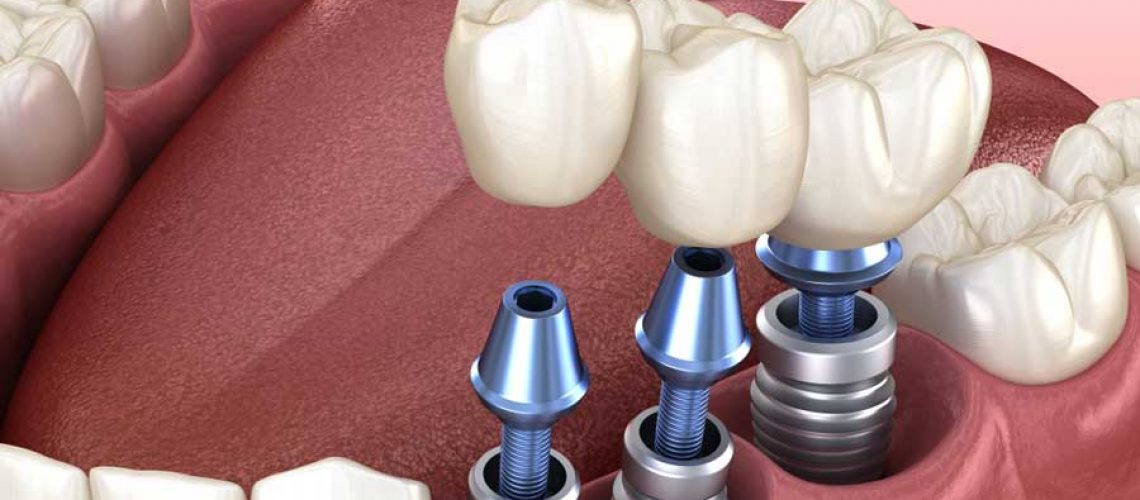What Is Gum Disease?
Periodontal disease, also known as gum disease, causes inflamed gums within the mouth and is caused by bacteria growth. Usually associated with poor dental hygiene, periodontal disease can have a lasting impact on a person’s smile and overall health, and if you don’t control your periodontal disease, can even lead to a negative impact of life quality. If you’re concerned about the risks of developing gum disease, be sure to reach out to our oral surgeon to learn how simple daily lifestyle changes can improve your oral health. For example, proper brushing and flossing after each meal can reduce the chances of gum disease happening by fighting off the bacteria that causes it. Choosing healthy foods can strengthen the tooth and improve tooth health as well.
Dental Implants And Gum Disease
Dental implants are a great way to reach the goal of a beautiful smile. However, it is important to maintain a healthy oral environment to truly get the most out of this great procedure. Many patients who hope to achieve long-term results with their dental implants must understand the importance of maintaining proper oral care. If teeth are not properly cared for after dental implantation, inflammation of the gums can occur, caused by bacteria overgrowth. This occurrence, known as peri-implantitis, can be a disaster for the dental implant process, and increase chances of failure in achieving a beautiful smile.
Frightening as that all may sound, dental implant failure is rare – implants are reported to be around 93% to 95% effective. Even if a dental implant failure occurs, it is possible to place another implant on the same site, particularly if the cause of dental implant failure is recognized and can be avoided. The risk of infection from this procedure is very rare but could cause serious complications if left untreated so if you believe you are experiencing more pain than is normal you should definitely seek a medical professional’s opinion.
Interested in Learning More?
If you’re looking to enhance your smile with dental implants, then contact our office to gain more information about the process, how to properly care for your teeth, and schedule a consultation!


